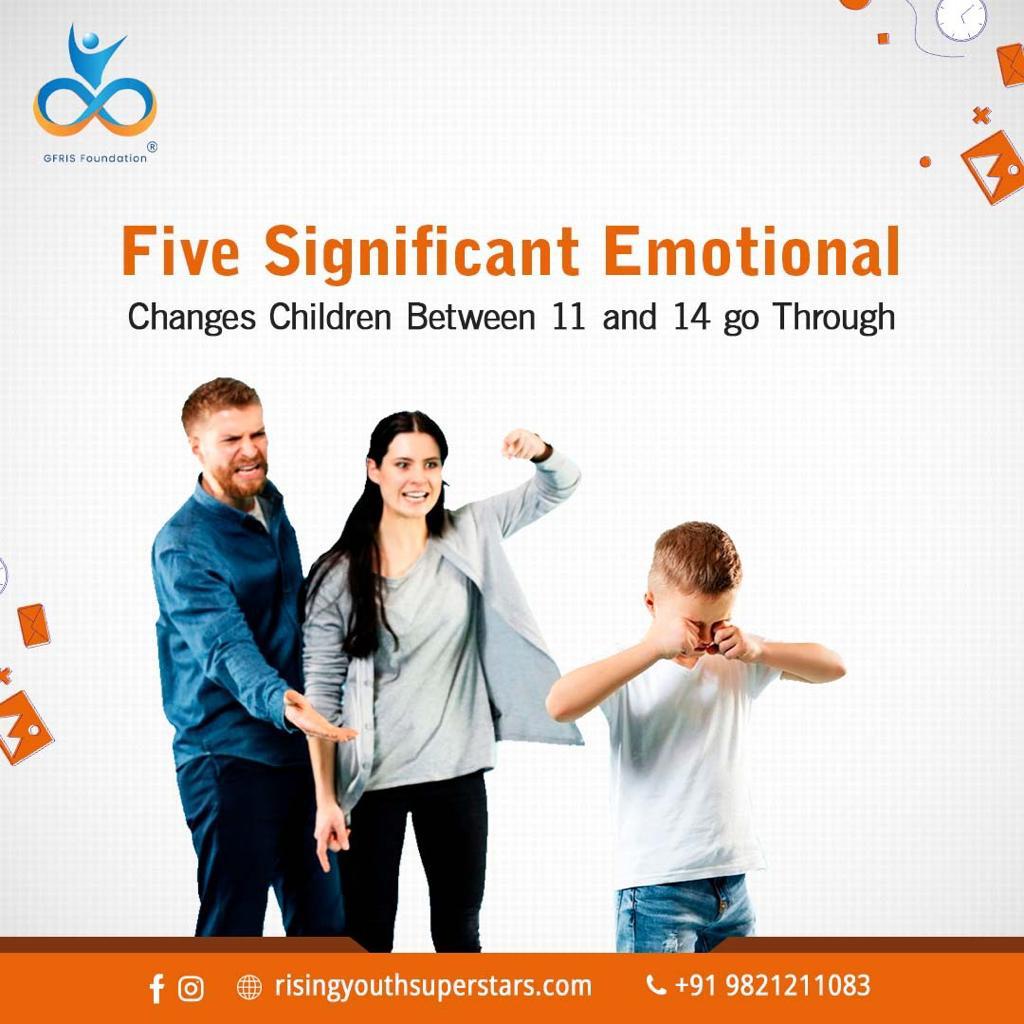Five Significant Emotional Changes Children Between 11 and 14 Go Through

As defined by the WHO, adolescence is the phase bridging childhood and adulthood, lasting between the ages of 10 and 19. In this phase, they experience brisk physical, cognitive and psychosocial changes. Psychosocial changes are about how the mind, consciously or unconsciously, adjusts to the social environment.
The early years of adolescence – through the years 11-14, when the transition to adulthood begins, are often the most difficult to navigate. During this stage, a push for independence and a search for identity and individuality begin. Parents may attempt to hold on to the childhood image of their children. Doing so will make the children only assert their independence more.
This is also when the most significant physical growth occurs. Your child’s height and weight will increase. A boy’s voice will deepen, and girls will experience their first menstrual cycle. Both genders will form viewpoints that differ from their parents, which have the potential to cause conflict. Moodiness and the demand for privacy will set in.
The ways in which emotional changes alter your child’s behaviour are:
- Social Transformation:
Your children shift from following your instructions to searching for an identity of their own. They attempt to work out how and where they fit in this world. At the adolescent stage, they are prone to influence from peers, media and school, and family expectations. Even cultural factors play a role in their transformation.
The nature of their brain development results in them seeking out new experiences. As their impulses are not entirely under control, they may occasionally indulge in risky behaviour. Your child will also begin forming an individual set of values and morals that may or may not align with yours.
- Unpredictable Moods:
Your adolescent children at home will display unpredictable moods and varied emotions. These ups and downs may result in conflict when before, there was none. As your children are in the process of expressing themselves, but without the emotional maturity of an adult, it can lead to complicated situations for parent and children alike.
- Become Self-Conscious:
They are more self-conscious, particularly about the changes in their physical appearance. Their self-esteem is linked to their appearance and how their peers and friends judge them. Attempts at imitating the latest trends or comparing themselves with their friends’ bodies inevitably follow.
- Sexual Awareness:
The adolescent phase often coincides with puberty. The onset of puberty causes sexual maturity in your child. When this happens, your child becomes curious and sexually attracted to the opposite gender.
These feelings are normal, and they should have their questions answered by an adult, a parent or a counselor, whoever they are comfortable having a discussion on sex with.
- Shifting Priorities Away From Family Towards Friends:
Once the adolescent phase begins, your children will lean towards forming relationships with friends and distance themselves from family. Their self-perception is linked to how others view them. While they crave independence and like to fit in with their peers and grapple with the need to be accepted by them, they also wish for guidance and support from their families.
So what can you do to help your children handle the internal conflicts they are facing? Don’t take the urge to break away and their insistence on privacy personally. Their demand for privacy is a normal part of growing up. Set some house rules for your children. They need some guidance even if they don’t admit it. They will attempt to negotiate the rules you set, so do allow for some flexibility.
Have a frank discussion with them regarding your own values on relationship issues and the pitfalls of consuming and experimenting with drugs, alcohol etc. Lastly, help your children explore their future options, but do not enforce your decisions on them.


Leave a Reply